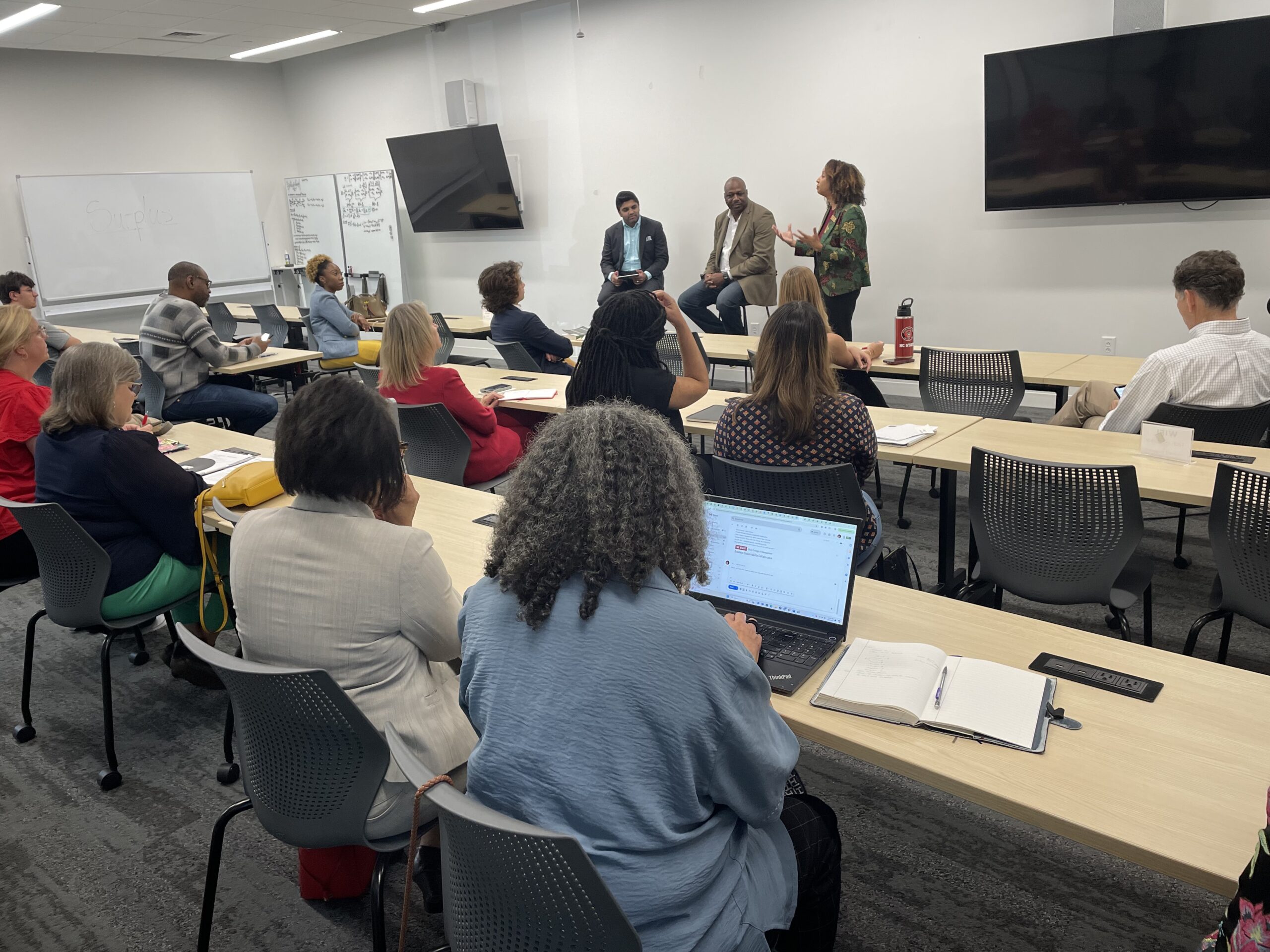Creating a handcrafted luxury shoe brand sourced and made in Italy in a highly competitive market is tough enough. Finding a way to do so sustainably is even harder.
Luckily, Jennifer Stucko has never been one to turn down a challenge. While she had a background working for top fashion brands Giorgio Armani, Ralph Lauren and Valentino, it was during Stucko’s time serving as General Manager of U.S. subsidiary for A.Testoni where her love and appreciation of Italian shoemaking began.
 “I had the magical experience of visiting their family-owned factory in Bologna, Italy and learned the 100-year-old craft of shoemaking they had applied to making the most elegant, high-quality footwear,” Stucko says. “Around the same time, I was studying the huge impact of the fashion industry on climate change,” Stucko explains. “My work and values were not aligned. I wanted to marry my passion for beautiful luxury footwear sourced and made in Italy while preserving our planet.”
“I had the magical experience of visiting their family-owned factory in Bologna, Italy and learned the 100-year-old craft of shoemaking they had applied to making the most elegant, high-quality footwear,” Stucko says. “Around the same time, I was studying the huge impact of the fashion industry on climate change,” Stucko explains. “My work and values were not aligned. I wanted to marry my passion for beautiful luxury footwear sourced and made in Italy while preserving our planet.”
She decided to tap into her powerful network, niche expertise and understanding of the Italian luxury footwear industry to create the highest quality women’s shoes fully sourced through the Italian supply chain using sustainable materials such as apple skins, grape skins and upcycled materials. In April 2019, Prota Fiori was born.
Stucko partnered with a third-generation factory in Le Marche, Italy, a region known for making the best luxury women’s shoes, and also the oldest region in Italy for making footwear. The family behind the factory was equally committed to operating under strict sustainability guidelines – recognizing this was the future of luxury footwear.
“No one in this space has started a business from the ground up with sustainability in mind while also preserving the incredible craftsmanship that comes with Italian shoemaking,” Stucko says. “Prota Fiori was born with a purpose to be a leader in sustainable luxury footwear.”
Becoming a B Corp
From the start, Stucko wanted Prota Fiori to become B Corporation certified. To her, the certification is simply an additional step of accountability for the sustainable practices she felt called to pursue. After learning about Poole College of Management’s B Corp Clinic, she jumped at the opportunity to participate. Not only does the college provide expertise in sustainability and supply chain management, but it’s Global Luxury and Management (GLAM) program provides a unique understanding of the luxury market.
“You know when the feeling of excitement and determination when you apply for college and you really wish to get accepted into your top target? That’s how it felt applying for Prota Fiori to be a part of the clinic.” Stucko laughs.
Sustainability hasn’t always been inherent in the luxury industry, particularly within the apparel and footwear markets, explains GLAM program director Kristie McGowan. “Many luxury companies develop sustainability practices that fit within their existing corporate framework rather than sustainability being something that is fundamentally at the core of the values of their company and products. As the luxury consumer evolves and their expectations regarding corporate and product transparency grow, we are going to see companies emerge who are truly guided by an ethos of sustainability. Prota Fiori and other sustainability minded companies are an integral part of the future of the business of luxury,” McGowan says.
This spring, the B Corp Clinic will wrap up its 10th semester. Over the past five years, the clinic has matched teams of students across various colleges and disciplines with more than 50 companies to go through the assessment process and identify strategies they can take to improve their B Corp scores. Students apply to participate in one of the teams – a highly competitive process, despite the fact students do not receive course credit nor compensation.
“In terms of students, we really do attract the best and the brightest. They value this opportunity to gain real-world business experience,” explains Jessica Thomas, director of the B Corp Clinic. “Students are doing real work that will be utilized by these companies – writing policies, identifying community partnerships and more in real-time. That experience is invaluable.”
While most of the companies selected to participate in the B Corp Clinic are further along in business operations, Thomas knew she wanted to make an exception for Prota Fiori. “Jennifer was so engaged with our students and committed to the process,” she says.
Proto Fiori’s team was coached by Svetlana Geshtovt (NC State) and Bonny Moellenbrock (Millbrook Impact), led by NC State Jenkins MBA student Mariam Diallo and included student consultants Rachel Mahr (Campbell University – MBA), Cameron Hawkins (Duke University – Masters in Engineering Management (MEM)/MBA), Lily Wherry (Duke University – MEM), Jacqueline Martinez-Romo (NC State – environmental sciences) and Michelle Kerstein (NC State – fashion and textile management).
The team’s initial B-Impact Assessment (BIA) led them to recommend changes in the focus areas of community, environment and workers. Key parts of the project included building a solid foundation for Prota Fiori to start gaining points in target areas, creating documentation to help track BIA progress, as well as drafting policies and procedures to help the company meet short, mid and long-term goals for sustainable best practices.
“Virtually collaborating with students from across the Triangle area in an interdisciplinary effort really sets the tone for how businesses can and should operate in this day and age,” says team lead Mariam Diallo. “This was a great opportunity for us all, as students, to engage with the B Corp Clinic and support the needs of Prota Fiori, two entities that work hard to do good.”
Suggestions the team provided based on their research in included incorporating diversity, equity and inclusion language into job descriptions, developing a supplier survey and tracking framework, incorporating charitable giving, developing a green office policy and environmentally preferred vendor list, as well as creating an employee handbook with recommendations that will maximize Prota Fiori’s BIA scores.
And to Stucko, who went into the process without knowing exactly how the semester would unfold, came away with more than she could have imagined.
“My team left me with a structured and applicable framework of what I need to put in place to achieve B Corp certification,” Stucko says. “Not only that, but five of the students on my team volunteered to continue working with me through the summer. This was not just a project to them – they are personally invested in my business.”
As for Prota Fiori, the New York City-based company quietly launched pre-orders for its first three designs in April amid a worldwide pandemic. To celebrate the company’s launch, Prota Fiori will plant 100 orange and pomegranate trees in the Prota Fiori Garden located in the Province of Syracuse in Sicily in honor of the first 100 customers – part of the company’s commitment to combat climate change by offsetting carbon emissions. Not only that, but up to 10 percent of pre-orders will support NYU Langone Health (NYC) and The Hospital of Northern Marches’s (Italy) COVID-19 relief funds.
“I truly believe this is the future of fashion and I’m looking forward to making a difference,” Stucko says.



